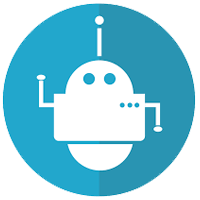
Robotic Process Automation with UiPath (Expert)
60 Hours
Description
It can be defined as an art of using software robots to interact with Software applications and IT systems to automate the rule-based manual jobs associated with repetitive and transactional processes. The robot mimics the interactions of an employee with a system's user interface.
When we hear word “Robot”, we start imagining of machines on a shop floor building cars or repairing aircraft engines etc, but the “robots” involved in robotic process automation aren’t robots in the physical sense. Rather, they are software that resides on a PC and interacts directly with business applications.
Course Relevance
Scope of RPA is huge and wide. This is, in fact, going to be the future and most important thing in the coming years. RPA in the future is going to incorporate the following areas:
- Insurance
- Finance and Banking
- Health Care
- Higher Education
- Public Sector
- Telecom
Job Opportunity
RPA is a hot field right now with companies being aware of its potential in recent times. People with RPA skills have lots of opportunities to choose from and get into the employment they favor more.
- Project Manager
- Developer
- Solution Architect
- Business Analyst
- Process Consultant
According to Forrester (Research and Advisory Company), if the Robotic Process Automation or RPA market continues to grow at its current rate, it will reach nearly $3 billion at end 2021. This growth is leading to the creation of more related jobs.